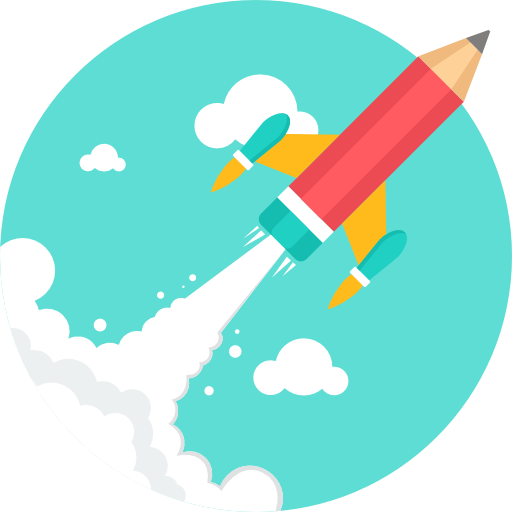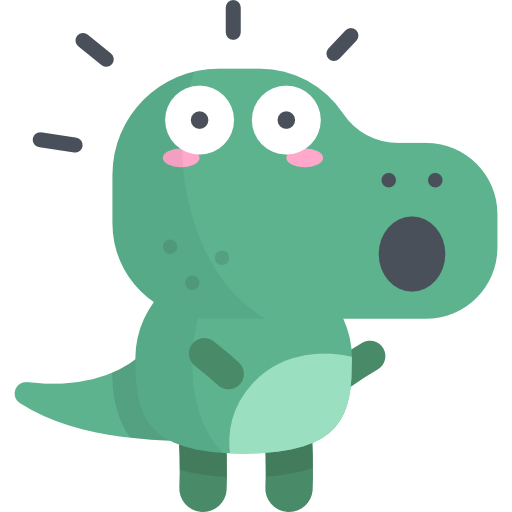I don't have a degree in software development, computer science, or anything else. My career in this field started very early, right after graduation and after a 9-month immersive course about web design.
After this first basic smattering of web development, which did nothing but excite me even more and confirm the fact that it was what I wanted to do, I immediately started working in a web agency and from that moment it was all about learning on my own, self-taught.
So now I would like to share with you the way I taught and trained myself, which will probably also highlight some of my obsessive-compulsive attitudes (but everyone knows that you have to be a little crazy to choose to do this job, so no spoilers), in the hope that they can be a source of inspiration for someone.
The beginning
In the early years of my career, I was working in an agency and, in my free time, I started my non-profit side project for the sponsorship and promotion of local emerging music, be-urself.com. It has been my purpose and my reason for living for 5 years and having a goal is something very powerful, which pushes you to improve and improve. It was then that, wanting to create the best project ever, I invested heavily in my professional growth. I was 25 years old and had all the enthusiasm that characterizes this age. It had to be exploited. At that time, I was already good with HTML and CSS, but the only programming language I knew was ASP Classic because it was both the language they taught on the course and the one used in the company. So it goes without saying that it was also the programming language used for my project. But it was old and everyone was pushing me to learn a new language. So this is where my journey through books begins.
2007
Not exactly a frontend reading, uh~? But, hey, I had a project to carry out and I was both the manager and the development team. I had to know how. These readings helped me understand a little better the existing best practices behind a programming language though I wasn't yet confident in writing an entire website in PHP and my project still continued in ASP Classic since at that point it was already very complex and was starting gaining popularity and being visited regularly. Therefore any major change could have undermined the confidence in it. And I really wanted to keep a solid project online.
So I decided to focus everything on the visibility and quality of the HTML code.
In those years, a magical thing was finally coming to life. HTML5. I was already completely in love with HTML. I worked with any kind of XHTML doctype, from the stricter to the looser, and I've learned a lot from each of them and how good code also affects search engine visibility. I remember spending hours validating every single page and having fun going back to my IDE to fix it every time something wasn't correct.
And then HTML5 arrived. Which not only made things easier by eliminating the doctype specification, but also added a bunch of new features that the web really needed.
Therefore, needless to say, subsequent readings were almost mandatory.
2011-2012
Yeah, you know? Just a couple. Because it's always good not to hear only one bell 😁 And even if they dealt with the same topic I learned something new from each of them.
I also bought and read A Book Apart's high-quality books, which were very popular at the time:
With all these innovations in the field, 2012 was also the year of the click where something started to change. I allowed myself to attend the very first conference of my life about web design and development and after almost 10 years in the same company I started to feel the need for new stimuli and a change. I had almost considered going freelance and the first conference I attended had some good ideas for freelancers.
At that time I was still a web designer, so I designed websites first and then coded them. And someone told me:
You suck in web design!
– oh boy, that's new, tell me something I don't know –
You can't design like that, you have to learn at least some design principles, grid structure, color theory, golden ratio etc...
They made me feel incompetent. But instead of getting discouraged, I took it as a challenge. I wanted to know these things. Because I like well-made and harmonious graphics and I wanted to learn how to draw them. So I threw myself headlong into the world of design.
And here are the books I devoured in one month at the end of that year:
2012
Yes, there is an intruder 👀 I used to occasionally pop in a book on PHP telling myself: "Come on, it can't be that hard to learn this programming language well!". However, the rest of the books were completely focused on design and how to draw and create harmonious graphics.
Those were also the years of the boom of WordPress, which although I never particularly liked because it went against the concept of clean and semantic HTML that I always tried to achieve in all my projects (I prefer to have full control of my HTML code), I expanded my knowledge by studying that a bit too.
Plus I was still thinking about becoming a freelancer since there was no longer any possibility for me to grow in my company, that's why the next readings were:
2013
The reading on Personal Branding was interesting regardless because it is a book about enhancing oneself and among other things the birth of this personal website of mine dates back to that year.
Also, I was still working on my non-profit project, but come that year I had to put it on hold for a while.
It was a very stimulating project, which gave me great satisfaction, but also very demanding and time-consuming, plus I was entering a new decade, the energy of my 20s was being affected and also my needs and my goals had changed.
The turning point
I wanted to turn the screws on my career. There were so many things out there that I didn't know and that we weren't using in our company that I wanted to learn. Plus I wanted to change, work on something different. For these reasons, I had to abandon my project and concentrate on studying.
And 2014 was finally the year of the break with the past and the decisive boost of my career.
Since I wanted to learn a lot of things in the shortest time possible, I started to create a strict study plan: for about 9 months, a different book a day, a chapter a day, for 5 days a week. When one book finished I started another. And so on. And since there were many topics that interested me, the 5-day weekly plan was divided by topics: perhaps a day dedicated to UX, one on design, one on development, one on SEO and so on.
Challenging but I learned a lot. It' like my little personal university 🤩 The nice thing is that, unlike universities, here I choose the topics I want to study 😏 and they are all interesting topics 😂
2014
2015
It was an intensive 9-months marathon, from September to May, just like a school! 😰 But everything was so interesting and I was so excited to learn!
The "Responsive Design" by Stephen Hay, in particular, was one of the most gorgeous and brilliant books I ever read. It has very interesting concepts about responsiveness and from then on I have only ever used that way to build my websites. Responsiveness has nothing to do with devices, but with contents 🤯
I also loved a lot the ones written by Steve Krug, the master of the UX, which really opened my mind about usability. And I'm also very fascinated by typography 😊
In 2015 I finally moved on and changed company, I spent 6 months in a company building a project in Angular and then I landed in a company specializing in e-commerce.
Whatever I was learning from those books, I tried to put into practice in the projects I worked on.
2014-2015 was also the period where I started calling myself Front-end Developer and no longer Web Designer. Because, you know what? I suck at web design! That is true, they were right. But that's okay!
I don't want to be a designer, I want to be a developer!
I want to write code, build things, make them interactive. I really appreciate well-made designs and they are the ones I prefer and work best with, but my creativity in designing was exhausted immediately and every new design was similar to the previous one, whereas writing code is so powerful, challenging and stimulating and you can make things happen ! Therefore I decided that my creativity was better spent on programming rather than designing.
Working in the new company the roles were better defined and I was no longer required to design the sites myself. I could continue to work with well-made graphics, but these came to me from competent designers. A dream! 😍
Furthermore, the knowledge acquired on graphics, color, usability, typography was (and still is) very useful in my frontend work because it makes it more precise and attentive to these issues.
This new vision gave me new energy, it was a productive and stimulating period and my personal academy had made me acquire a lot of new knowledge, plus I kept buying sector books. Therefore, I decided to repeat a second 9-month immersive study cycle.
2015-2016
In this new cycle I further explored the principles of web design and usability but I also dusted off and explored the rules of accessibility that I had already started to use in my first work experience given that in recent years we had started to take charge of many institutional sites so having an accessible site was mandatory. The good thing about accessibility is that if HTML is used properly and semantically it is already accessible. Therefore, another point in favor of writing good HTML that I was already extremely in love with.
At that point, HTML and CSS were already my strengths. However, I had to improve my knowledge of JavaScript because a self-respecting frontend must know it thoroughly.
My brief experience with Angular made me realize that I was far behind in that regard and that I absolutely needed to study JS from the ground up.
2019
And I started reading, but I'm not done yet (I should probably do another round of self-academy 😂 ):
The "Javascript & JQuery" book by Jon Duckett is a must-have, if only for its graphic layout. It's a gem, divinely illustrated, and it introduces you Javascript from its origins, when it was used to manipulate the DOM, concepts that are important to know.
Instead, "Learning Vue.Js 2" by Olga Filipova was the book that started my new career path. Very well explained, it helped me start developing with Vue in a snap of fingers.
Of course, my studies on Javascript were not based only on books but here we are narrating my journey through books and online courses and hands-on are part of another story
So what happened here? Even though I love the world of web 360 degrees I have understood I can't know it all but most of all I can't know it all well. That's why from a large circle I decided to narrow it down to a dot and specialize on pure frontend delving into one programming (well, actually scripting) language that is Javascript. First because it is essential on the frontend and second because since it has also become a server-side language I can definitely abandon my studies on PHP 😜 One language to rule them all. I love flexibility 😂
And now?
Meanwhile, I changed company again and I am now massively work with Vue.js 💚 and the latest tech book I read is the must-read from Uncle Bob:
But I still have a lot of books bought in the past that I still need, and want, to read.
Most of them still remember when I wanted to delve into design and some of them are really old but I want to read them anyway because I'm pretty sure there's something to learn or at least brush up on anyway.
Is it maybe time for a new cycle of self-academy? 😏
To be continued...
)
)
)
)
)
)
)
)
)
)
)
)
)
)
)
)
)
)
)
)
)
)
)
)
)
)
)
)
)
)
)
)
)
)
)
)
)
)
)
)
)
)
)
)
)
)
)
)
)
)
)
)
)
)
)
)
)
)
)
)
)
)
)
)
)
)
)
)
)
)


